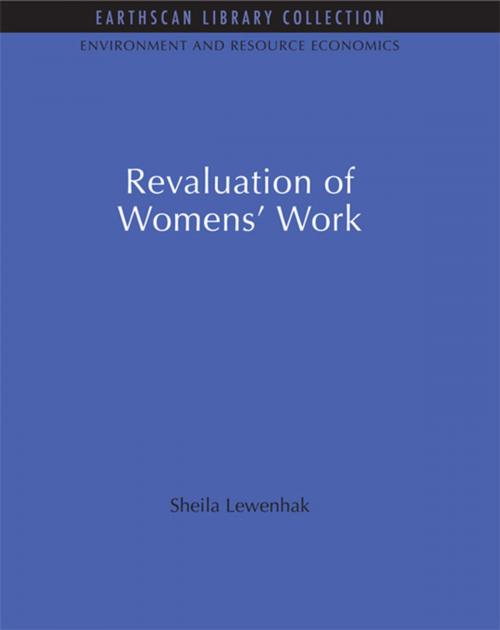| Author: | Sheila Lewenhak | ISBN: | 9781134049370 |
| Publisher: | Taylor and Francis | Publication: | November 5, 2013 |
| Imprint: | Routledge | Language: | English |
| Author: | Sheila Lewenhak |
| ISBN: | 9781134049370 |
| Publisher: | Taylor and Francis |
| Publication: | November 5, 2013 |
| Imprint: | Routledge |
| Language: | English |
This book provides a survey and analysis of the different ways in which women's work is valued throughout the world. It challenges the narrow definition of work as paid work, as that excludes so many of women's activities. It looks at ways in which women's worth has been consistently undervalued in industrial as well as non-industrial countries, in socialist as well as free-enterprise economies. These practices distort the national product of countries heavily dependent on women's labour, but, above all, they are among the most obvious marks of the exploitation of women. Technological changes are already altering established female/male divisions of labour. Transnational enterprises, often located in Special Economic Zones, are reducing differences between industrial and nonindustrial countries. Valuing women's work correctly, whether unpaid in the home or underpaid outside it, is part of the battle against discrimination and poverty. Men who do similar work also benefit. It is the crucial step towards the achievement of male/female equality. The book will be particularly valuable for those concerned with the issues, in trade unions, women's groups, international agencies and NGOs and for course in economics and social studies.
This book provides a survey and analysis of the different ways in which women's work is valued throughout the world. It challenges the narrow definition of work as paid work, as that excludes so many of women's activities. It looks at ways in which women's worth has been consistently undervalued in industrial as well as non-industrial countries, in socialist as well as free-enterprise economies. These practices distort the national product of countries heavily dependent on women's labour, but, above all, they are among the most obvious marks of the exploitation of women. Technological changes are already altering established female/male divisions of labour. Transnational enterprises, often located in Special Economic Zones, are reducing differences between industrial and nonindustrial countries. Valuing women's work correctly, whether unpaid in the home or underpaid outside it, is part of the battle against discrimination and poverty. Men who do similar work also benefit. It is the crucial step towards the achievement of male/female equality. The book will be particularly valuable for those concerned with the issues, in trade unions, women's groups, international agencies and NGOs and for course in economics and social studies.















